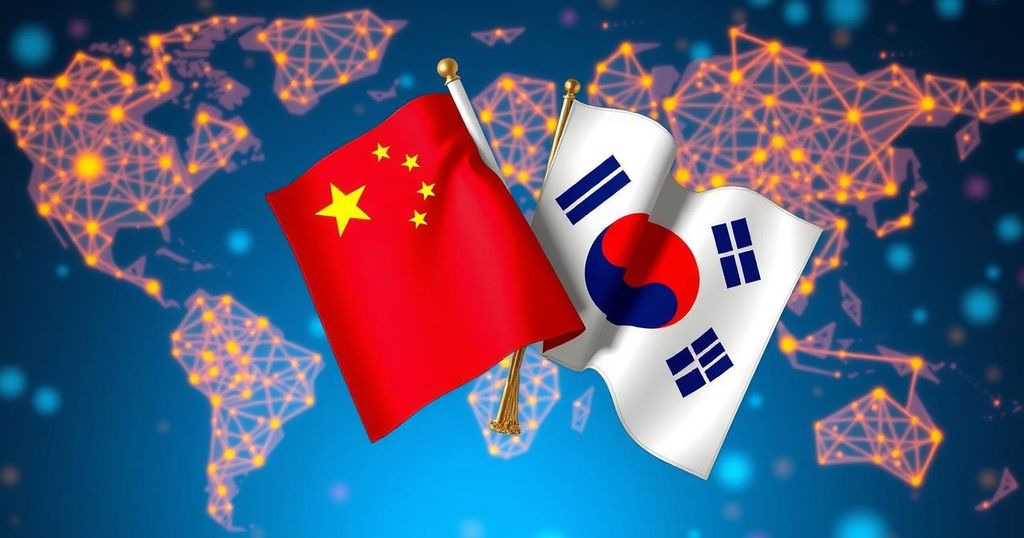China, Japan, and South Korea Unite to Counter U.S. Tariffs
China, Japan, and South Korea have agreed to jointly respond to U.S. tariffs amid recent trade tensions. They aim to strengthen supply chains and engage in dialogue over export controls following their first economic dialogue in five years. Trade ministers committed to negotiating a free trade agreement to promote regional trade as they brace for potential new tariffs from the U.S.
China, Japan, and South Korea have reached an agreement to jointly address U.S. tariffs, as reported by a social media account associated with the Chinese state broadcaster CCTV on March 31. This collaboration stems from their first economic dialogue in five years, which aims to enhance regional trade amidst challenges posed by tariffs initiated by U.S. President Donald Trump.
During the discussions, Japan and South Korea expressed their intention to import semiconductor raw materials from China, while China voiced interest in acquiring chip products from both Japan and South Korea. The parties also acknowledged the necessity to bolster cooperation in supply chains and emphasized the importance of ongoing dialogue regarding export controls.
In their meeting on March 30, trade ministers from the three nations committed to cooperating closely on comprehensive and high-level negotiations regarding a free trade agreement among South Korea, Japan, and China. This initiative aims to strengthen both regional and global trade, as outlined in a subsequent statement.
The ministers convened prior to President Trump’s anticipated announcement on April 2 concerning additional tariffs, which he labeled as “liberation day.” This development could significantly alter trade relations. Despite being prominent trading partners with the U.S., Beijing, Seoul, and Tokyo have faced ongoing tensions, particularly due to territorial disputes and Japan’s handling of wastewater from the Fukushima Daiichi nuclear disaster.
The collective move by China, Japan, and South Korea signifies a strategic response to U.S. tariffs, emphasizing regional economic collaboration. The commitment to enhance supply chain cooperation and pursue a free trade agreement is paramount for mitigating the impact of U.S. trade policies. Continued dialogue among these nations may foster a collaborative framework for navigating future trade challenges in an evolving global economy.
Original Source: news.az








Post Comment